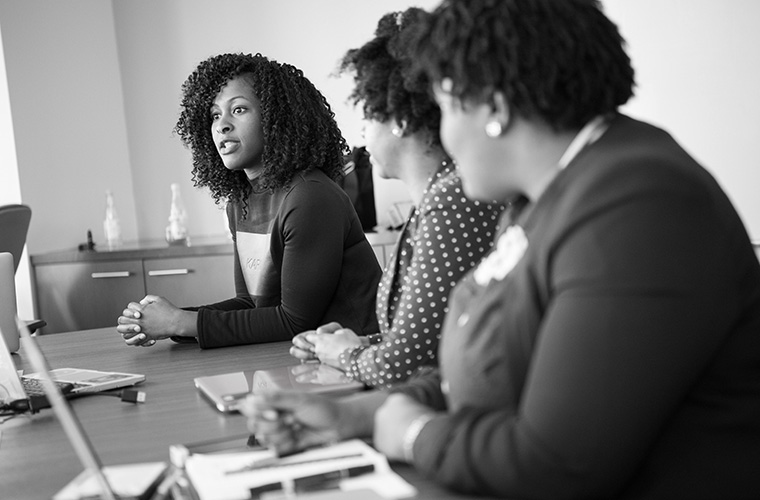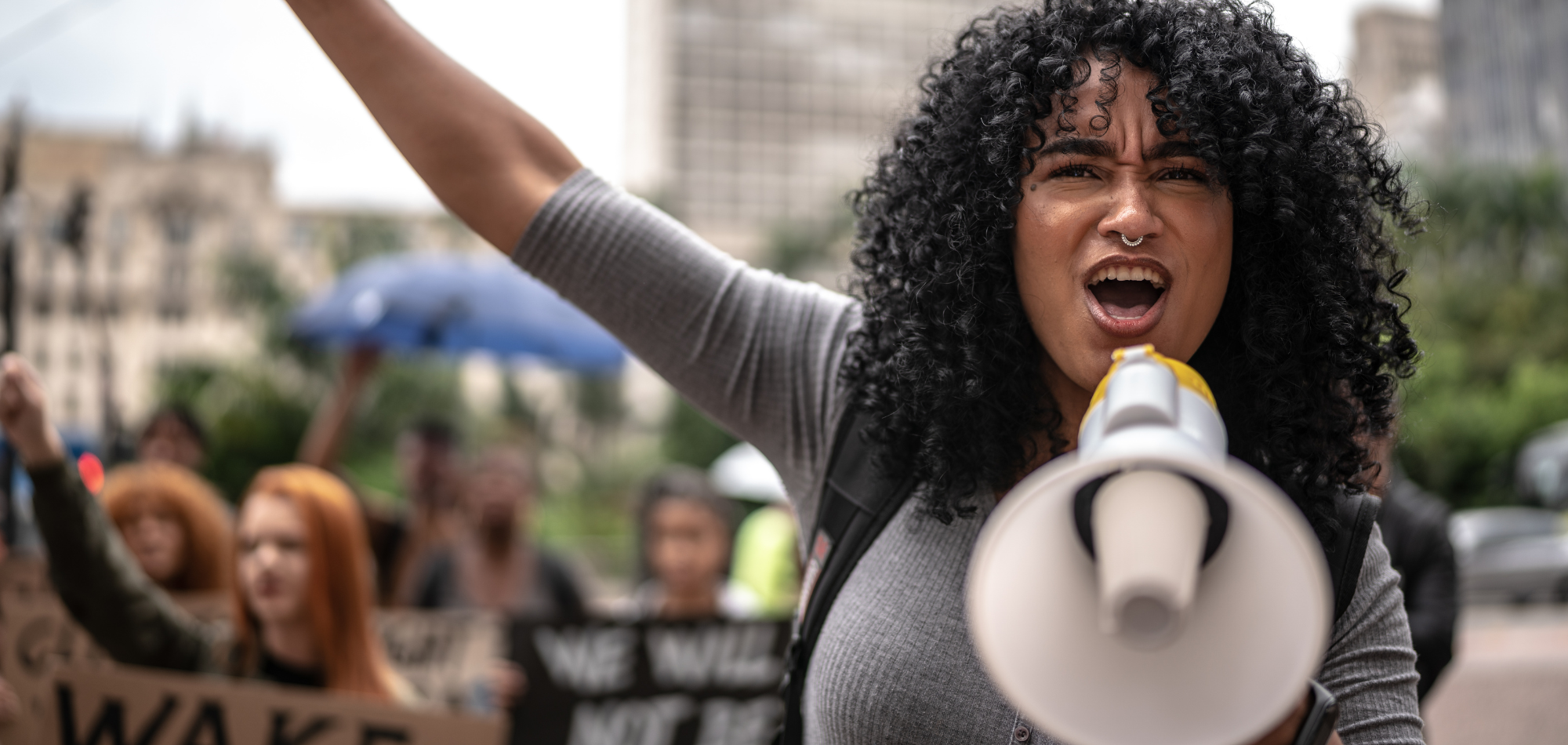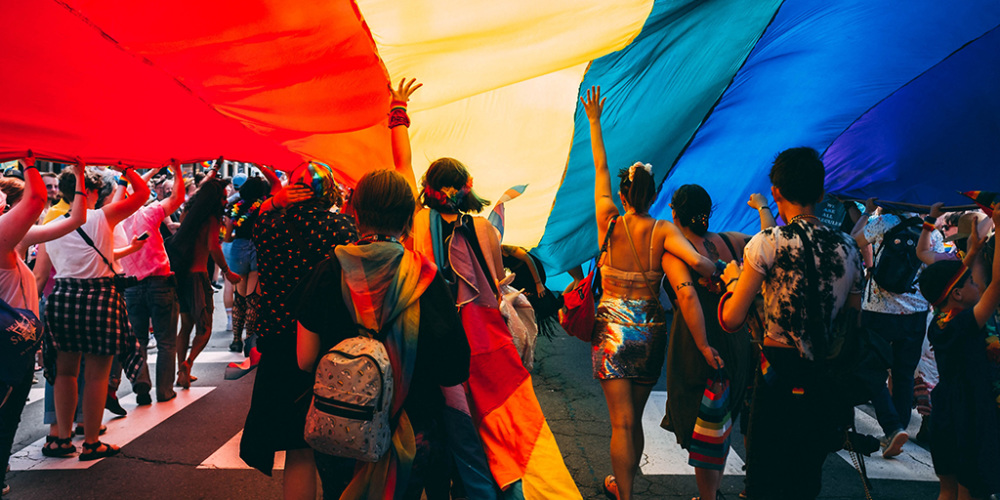

I was retraumatized by my school after reporting sexual assault. DeVos wants every student survivor to go through the same.
By Isha Khanzode, ERA client
Throughout the past year and a half, a blind search for justice after sexual assault has revealed itself to me as a Sisyphean process: a constant pushing of a boulder up a hill only to have it roll back down when it reaches the top. At the very least, I’m lucky the boulder hasn’t crushed me on its multiple trips back down the hill like it has with other student survivors of sexual violence.
The forces that put me in that boulder-pushing place, however, have forever tainted my view of the “justice” system. I thought that after being the victim of a crime, there would be proper channels for justice and retribution for me, but I’ve learned that is often not the case when it comes to sexual assault. There are paths to justice, but they are often blocked by unnecessary barriers of resistance. A good path forward is hard to find, especially when so many are laden with institutional incompetence.
I found Equal Rights Advocates, who became my backbone throughout the rest of the first investigation and through all of the second investigation.
Going through a Title IX case at California Institute of the Arts (CalArts) was not as restorative as I thought it would be. I had some trust in my art institute that it would support me and clearly see the wrongs that were committed against me, but I was also wary because I’d heard of how many Title IX cases are mishandled in general — my institution included. Keeping that in mind, I decided to take my chances, but right away those chances did not look good. The language the investigator used during my interviews about the sexual assault was heavily victim-blaming and not trauma-based. During a phone call interview, the investigator asked, “how come you didn’t act like a victim of sexual assault?” which made me question myself. In hindsight, I think that was the intent. Broad questions intended to make the survivor second-guess themselves are unfortunately commonplace in sexual assault investigations.
These interactions with the investigator ultimately slowed down my ability to heal and negatively impacted my mental health. While I sent some strongly worded emails to my school’s Title IX team about how I was treated, the general response was that what happened during the investigator’s interview was simply part of the procedure, and the institute could not control what the investigator asked. If the institute cannot control the language used during its own investigations, then what can it control? Their lack of control ends up becoming another guise for ignorance.
Continued below.
The same excuse of ignorance has been heavily employed in how the second investigation was conducted. Yes, there was another one. The second investigation started because of a complaint about an art show my friend and I created to document the healing process from our similar traumatic experiences. The person who sexually assaulted me made a complaint about the show, claiming it was retaliatory.
So now having to navigate a retaliation claim, I decided that I really needed to find pro-bono legal counsel, which was another feat in and of itself. After jumping through many hoops, I found Equal Rights Advocates, who became my backbone throughout the rest of the first investigation and through all of the second investigation. With their help, the first investigation was appealed and a new investigator was instated. The person who assaulted me chose to leave the school before the new investigation could start, but the retaliation investigation kept going for almost a year even while the assailant was not enrolled. So going through a second investigation just felt like another punishment from my school, especially as they backed the assailant’s complaint of retaliation while at the same time treating my initial sexual assault complaint with little regard.
Support our lawsuit against Betsy DeVos
Give at equalrights.org/donate
Having my art show be investigated as retaliation at an art school seems ironic. How can a sexual abuser’s attempt to censor the survivor’s art hold ground at an institution that prides itself on freedom of expression, and this months after the abuser has left the institution altogether? The harm he caused me is much greater than how my art could have upset him. As an art institute that defines itself as “an all-inclusive community for a diversity of authentic voices,” this seems hypocritical, especially when a survivor’s “authentic voice” can be so easily weaponized by their abuser while the institution turns a blind eye and ends up supporting the weaponization. To quote an email I sent to the Title IX officials after the first investigation: “It is becoming more difficult to process everything, because it all just feels like one sick joke.” And it never stopped feeling like a joke.
Filing a report is already daunting for students, but add having to process a sexual assault while also trying to prove your own innocence, and it becomes even more confusing and infuriating. If the current process already feels so unsafe for a student survivor, I’d hate to imagine what the reality will be under Betsy Devos’ new Title IX rules.
The federal rules put in place by Betsy Devos in August turn the Title IX process into a minefield for student survivors, even worse than what they used to have to tiptoe through. Because of DeVos’s new rules, parts of my school’s botched Title IX process will be set in stone as law for all schools across the country. Beginning with the reporting process, student survivors now will face even greater hurdles, including the assumption that they’re lying from the moment they report, thanks to a new higher evidence standard. So in addition to the fear that already makes survivors reluctant to come forward, students from kindergarten through graduate school will now face a process where the odds are immediately stacked against them.
In addition to the fear that already makes survivors reluctant to come forward, students from kindergarten through graduate school will now face a process where the odds are immediately stacked against them.
On top of potentially re-traumatizing interrogation by often ill-trained investigators, survivors will also be cross-examined live by an “advisor” of the harasser’s or assailant’s choice, which could be the assailant’s friend, lawyer, or parent. They’ll also be subject to potentially neverending investigations, similar to or worse than what I endured, because deadlines and timeframes will be removed, leaving a loophole for schools that want to indefinitely drag out proceedings in order to avoid findings of sexual assault. (As the survivor organizations like Equal Rights Advocates have shown, schools are strongly motivated to avoid findings of sexual violence so they can avoid being sued later by the assailants.) DeVos’s new rules will ensure that student survivors across the country go through similar or even worse re-traumatization than I did.
Title IX is not perfect, especially when schools so badly botched the process like mine did. But hopefully one takeaway is clear: No one should ever have to go through a Title IX case as dehumanizing as mine. Instead, survivors should be given the help they need to push that unforgiving boulder into its place, permanently.
________
Read more student survivors’ stories on how they’re fighting back against DeVos’s Title IX changes.
Click here for information about our free legal services for student survivors of sexual assault and sexual harassment.
Stay Connected & Take Action
- Get the Latest News & Information Sign up for Email Updates
- Sign Up for Action Alerts Join the Action Team
- Follow Us

